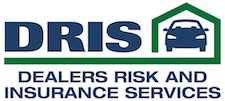When purchasing or renewing their commercial property insurance, it’s vital for businesses to ensure such coverage includes correct property valuations. Doing so can make all the difference in providing sufficient protection and preventing coinsurance penalties amid covered property losses. That’s where conducting accurate insurance-to-value (ITV) calculations comes into play. Generally speaking, ITV refers to an approximation of the full cost to replace or restore insured property.
Businesses may end up with inaccurate ITV calculations for a wide range of reasons—whether it stems from leveraging ineffective property valuation methods, intentionally underestimating costs in efforts to secure reduced premiums or being impacted by factors outside of their control (e.g., inflation). Regardless, such inaccuracies are all too common. In fact, an estimated 75% of commercial properties are underinsured by 40% or more, according to industry data. With these findings in mind, it’s evident that businesses need to take commercial property valuations seriously.
ITV Explained
An accurate ITV calculation represents as close to an equal ratio as possible between the amount of insurance a business obtains and the estimated value of its commercial property—thus ensuring adequate protection following property losses.
However, it’s important to keep in mind that a property may be assigned several different values, including the following:
- Market value—This value is an estimate of what a property could be sold for in the present real estate market. The market value of a property is based on elements such as lot size, building condition and location desirability.
- Assessed value—This value is an estimate generated by the municipality where a property is located. Such a value is typically utilized to determine local property taxes.
- Replacement value—This value is an estimate of the current cost to replace or rebuild a property. The replacement value of a property depends on characteristics such as material and labor expenses, architect services, debris removal needs and building permit requirements.
Generally, insurance experts recommend using the replacement value of a property to conduct correct ITV calculations. Common approaches to accurately estimating this value include getting a property appraisal from a third-party firm, leveraging fixed-asset records that have been adjusted for inflation or relying on a basic benchmarking tool (e.g., dollars per square foot).
While appraisals often require more time and resources than other property valuation methods, they are largely deemed the most thorough and accurate. We can review your current commercial property insurance policy and help you with finding the right policy for you.

